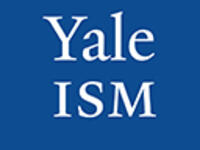
Messiah - George Frederic Handel
Marguerite L. Brooks, conductor
Jessica Petrus, soprano
Michael Wisdom, countertenor
Steven Soph, tenor
John Taylor Ward, bass-baritone
Woolsey Hall
500 College Street
Free; no tickets required.
Marguerite L. Brooks will conduct the Yale Camerata in a performance of Handel’s beloved oratorio Messiah in Woolsey Hall (College at Grove, New Haven) on Sunday, April 22 at 3 PM.
In July of 1741 George Frideric Handel received the text for a new oratorio project from Charles Jennens, a wealthy patron of the arts and Handel’s sometime librettist. The text for the oratorio was titled Messiah and depicted, in its three parts, Christ’s Nativity (Part I), his Passion, death, resurrection, and ascension (Part II), and the Day of Judgment on earth (Part III). Handel set Jennens’s text to music in twenty-four days of rapt inspiration the following month, and the result has proven to be one of the enduring artworks of the Western musical tradition. The Messiah, one of the first works in the history of music to have a performance tradition that stretches, virtually uninterrupted, from the day of its premiere (at the Great Music Hall in Dublin, 13 April 1742) to our own, features some of the most well-known music in all of the classical canon: perhaps most famous of all is the “Hallelujah” chorus, which closes Part II, but other of the oratorio’s numbers, the opening Sinfony, the choruses “For unto us a Child is born,” “Glory to God,” and “Since by man came death,” and the arias “Rejoice greatly, O daughter of Zion” and “I know that my Redeemer liveth” are almost, if not equally, well-known. Such a staple has the Messiah become, so much a part of eighteenth-century music’s cultural heritage and so much a part of our own musical life, that to experience the work is also to a certain extent to plug in to that active and unbroken tradition. The performance practices of the Messiah (instrumentation, cuts, etc.) may have changed over the centuries, but the music’s status as iconic endures.
Founded in 1985 by its conductor, Marguerite L. Brooks, the Yale Camerata is a vocal ensemble sponsored by the Yale Institute of Sacred Music. The group’s singers are Yale graduate and undergraduate students, faculty, staff, and experienced singers from the New Haven community. The Camerata performs a widely varied spectrum of choral literature, with a specific commitment to recently composed choral music. .It has collaborated with the Yale Glee Club, Yale Philharmonia, Yale Symphony, Yale Band, Yale Chamber Players, Yale Collegium Musicum, the New Haven Chorale, and the symphony orchestras of Hartford, New Haven, and Norwalk. The ensemble has also performed for Yale Music Spectrum and New Music New Haven.
The Camerata has been heard on Connecticut Public Radio and on national broadcasts of National Public Radio’s program “Performance Today.” Guest conductors have included Robert Shaw, Jaap Schröder, Sir David Willcocks, Krzysztof Penderecki, Sir Neville Marriner, Helmuth Rilling, Nicholas McGegan, Dale Warland, and Simon Carrington. With the Institute of Sacred Music, the Camerata has commissioned and premiered works of Aaron J. Kernis, Martin Bresnick, Daniel Kellogg, Stephen Paulus, Daniel Pinkham, and Ellen Taaffe Zwilich, among others. The chorus has sung first performances of works by many composers, including Kathryn Alexander, Tawnie Olson, and Francine Trester.
The Woolsey Hall Messiah concert is free and open to the public; no tickets are required.